EXCESSES: The unresolved BMF scandal looms large even while some seek answers to the 1MDB puzzle In researching my subject I came across an article that I wrote for the Australian Journal of Public Administration in December 1999, titled “Malaysia Incorporated: Ethics on Trial”, as well as a paper that I delivered to the International Institute of International Affairs, Chatham House, London on March 19-20, 2001 titled “Has Reform Revived the Miracle?” I struck some historical nugget of information about Tun Dr Mahathir Mohamad’s outrageously questionable ventures that many may have forgotten. I believe it is important for our youth to know something about the Dr Mahathir years. For example, the country’s oldest English language broadsheet, the New Straits Times, felt constrained to editorialise on Sept 23, 1978, no doubt more in sorrow than in anger, “there was once a time when a Malaysian could indulge in a little smile of condescension when stories of corruption in developing countries, other countries of course, were entirely justified: virtually every aspect of administration was clean, abuse of power unheard of, departmental morale was high, public confidence was vibrant. For whatever reason, the present conditions have called forth a litany of exhortation against corruption”. The nostalgic “there was once a time” was a pointed reference to the administration of the first prime minister, Tunku Abdul Rahman, to whom service before self was an important personal creed. Soon after Dr Mahathir took over the reins of government, a horrendous financial scandal engulfed Bank Bumiputra Berhad, incorporated in 1978 as the vehicle to launch the Malays into business. Touted as the “flagship” of the New Economic Policy, by 1988 it had assets worth more than US$15 billion (RM54 billion). Moving aggressively into overseas ventures, lending recklessly to politically well-connected companies and individuals, many of them possessed neither the capacity nor the intention of repaying the loans. The bank shifted large sums of money to its wholly-owned subsidiary, Bumiputra Malaysia Finance Limited (BMF), which in turn lent in total close to US$1 billion to a Hong Kong $2 company called Plessey Investment Limited and another, Carrian Investment Limited. George Tan, the man behind Carrian, within months of the BMF money going through the books, ran his company into the ground. Billions disappeared into thin air. In Malaysia a committee of inquiry was set up, headed by Datuk Ahmad Nordin, the fearless auditor general whose report stopped just short of naming senior members of government who had profited from the loan disbursements. Nordin recommended that criminal proceedings be instituted against those involved. No such action took place in Malaysia. In Hong Kong, criminal action was taken under the law against the crooks as soon as the scandal broke. Scapegoats or, to use the modern expression, fall guys were quickly identified and “persuaded” to fall on their swords. One of them was Lorrain Osman, the then chairman of BMF, who went into exile in England. In Malaysia, Dr Mahathir’s studied indifference served to reinforce suspicions of high-level complicity. The most damning indictment was the claim made by a Hong Kong lawyer that BMF and its parent, Bank Bumiputra Malaysia Berhad, accepted an arrangement based on incestuous relations between senior politicians and bank officers and that his client simply carried out orders (Clad 1989:53). This, as to be expected, was never proven in Malaysia. I have highlighted just one incident that I was prepared to treat in a spirit of charity as an aberration. A few years ago, before he died, I met Lorrain in the company of my old friend, Datuk Yunus Rais, in London and over a meal asked Lorrain who was behind the Carrian affair? He asked me whether I thought that he alone could have made the decision to move billions of US dollars without instructions from “high above”? I had the answer I had been after all those years. In a more open and accountable society, the wrongdoers would not only have been dragged through the courts, but the government, too, would have been brought down. We need to find all the answers to the 1Malaysia Development Berhad (1MDB) financial conundrum, and the prime minister has done the right thing by getting the auditor general to investigate the operations of the company. Before we deliver a guilty verdict, let us exhaust all investigations and other avenues before we call anyone to account. We will, in our current climate of openness, get a lot faster to the bottom of 1MDB’s shortcomings, if indeed there are problems, than we got out of the investigations into financial and other excesses during the lost ethical years when Dr Mahathir was prime minister. (In the writing of this article, I have used information from the works of Gale, B; Clad; Jomo, K.S.; Hussein, S.A.; and the ‘New Straits Times’ Sept 23, 1978. I am indebted to them all.) The writer is a director of International Institute of Public Ethics and board member of the Malaysian Anti-Corruption Commission.
Read More : http://www.nst.com.my/node/82921






























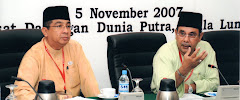


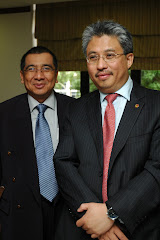
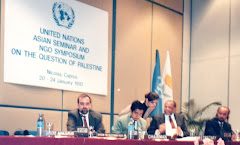
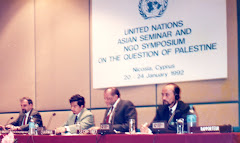


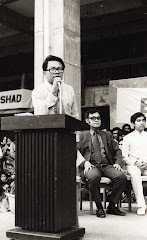


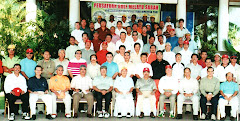





No comments:
Post a Comment